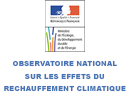Simulation of Post-Kyoto Negotiation Strategies in a Fragmented International Climate Regime
Simulation of Post-Kyoto Negotiation Strategies in a Fragmented International Climate Regime
This Research Programme is aimed at simulating the possible developments of GHG-emission reduction strategies in a post-2012 setting, taking into account the strategic interactions between parties (countries grouped into regions, for instance: OECD countries, developing countries, fossil-fuel producing countries). The methodology will implement a global technico-economic model (TIMES with 15 regions) and a calculable general balance model (GEMINI-E3), as part of a multiple-agent optimisation project (game theory), in order to simulate possible developments in GHG emission reduction policies. Faced with the fragmentation of the climate regime underway since the United States withdrew from the Kyoto Protocol, the objective will be to identify regional agreements that are stable (i.e., contain no incentive for deviation) as well as equitable (providing burden-sharing and balanced costs), taking into account players’ resource endowments, exchanges and the effects of international emission-rights trading markets.
We will compare the “large-scale post-Kyoto coalition” scenario, incorporating all regions of the world, and aimed at attaining an overall target of massive GHG emission reduction (for example, with an emissions development path ensuring that stabilisation of GHG concentrations at a safe level), under a scenario involving a “fragmented climate regime”, made up of two main coalitions. In such a system, the “post-Kyoto” coalition would be made up of countries having ratified the Kyoto Protocol, which would commit to an agreement aimed at achieving an ambitious total GHG-emission reduction in the long term, while the regions belonging to the “Asia-Pacific” coalition (including the United States, Australia, China and India) would commit to a technological agreement promoting “clean coal” technologies and civil nuclear power. This analysis will enable us to assess the consequences of the international climate regime’s fragmentation in environmental (e.g., determining emission-reduction effects by region, global GHG reduction), technological (e.g., analysing the effects of the technological agreement on technological progress and the dissemination of technological toward developing countries) and economic terms (e.g., effects on well-being, effects on international competitiveness).
The project’s deliverables will include:
- coupling between the global energy decision-making model TIMES (15-country) and GEMINI-E3;
- a methodology for representing the strategic actions of countries with oil, gas or coal resources,
- a methodology for representing the emission-limitation commitments, by region, such that they are stable and equitable, taking into account the possible formation of regional coalitions and the institution of international (or regional) emission-rights markets
- scenarios reflecting different rules governing the sharing of emission-reduction efforts;
- assessment of the effects of climate policies on developing countries’ progress.
| Coordinators |
Alain Haurie Dr., Professeur honoraire Université de Genève, Directeur, ORDECSYS |
| Partnership |
KANLO |
| Funding |
MEEDDM
|
| Budget |
120 000 € TTC
|




